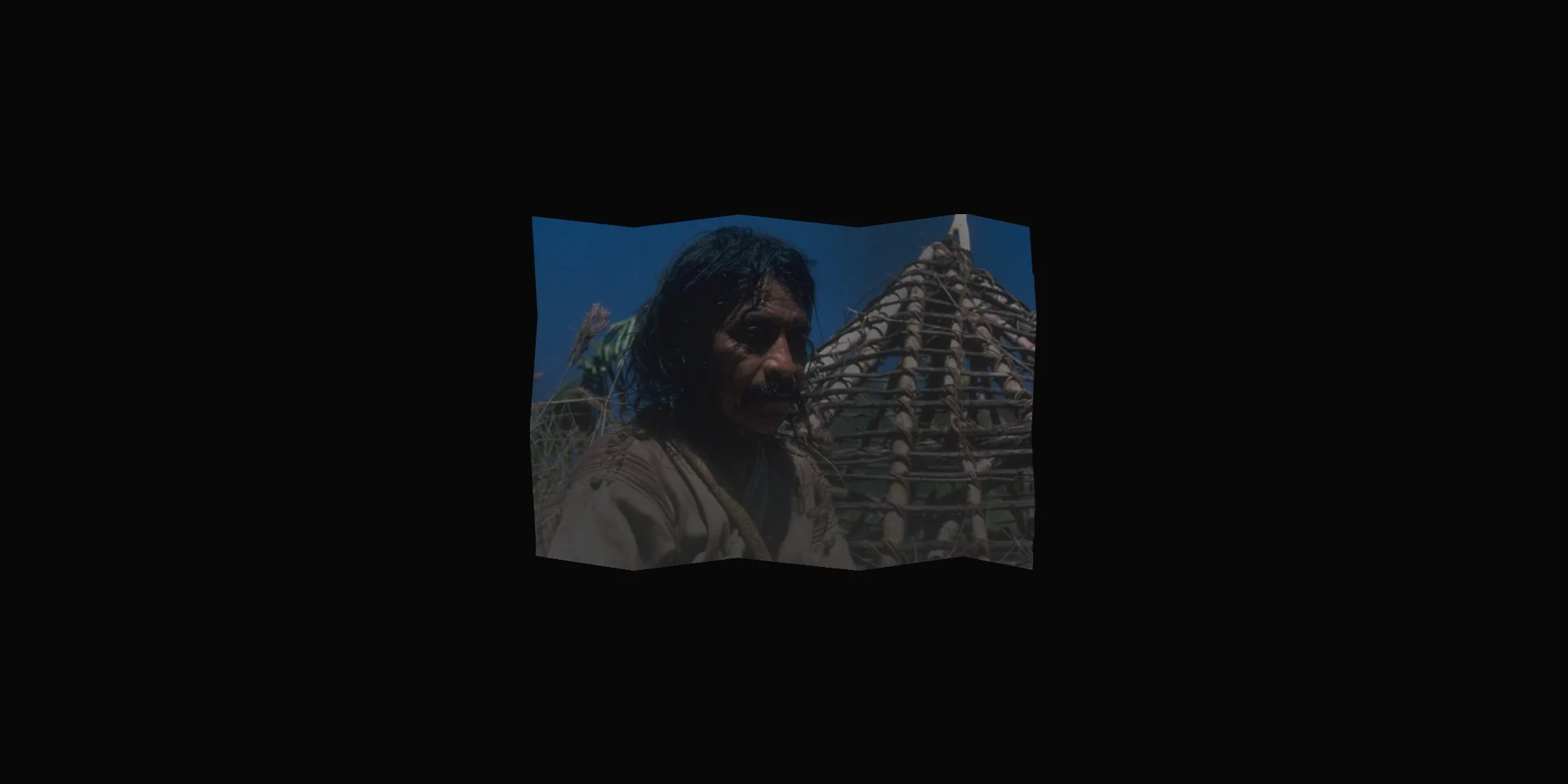In this audio-visual presentation, Alan Ereira will describe a personal and professional journey that took him from making acclaimed documentaries about European history to Colombia where he met the Kogi people and foolishly said “If you want to speak to the world, I can help you”. He will talk about the Kogi’s indigenous cartography and the problems of translation and representation involved in working with them collaboratively in the making of a major documentary. He will also discuss how building their world-view into a platform for addressing key issues of climate change can challenge the Eurocentric perspectives of much current environmentalist discourse.
Alan will be in conversation with two leading environmentalists, Bob Gilbert, author of Ghost Trees (2018) and Candace Fujikane, author of Mapping Abundance for a Planetary Future (2021).
Summary
In 1976, Colombia announced that a large “lost city” older than Machu Pichu had been found just 24km from Santa Marta, the oldest colonial city of the Americas. The colonisation and history of the country has been developed by mapping discoveries, conquests and land “ownership”. The settlers had justified the takeover of indigenous land from the Tairona inhabitants by claiming a higher level of civilisation, science and ambition. At the entrance to the Lost City archaeologists found the ‘mapstone’; they could not, and still cannot read it. It contains cartographic information they still lack. The question “how do you lose a city” goes to the heart of their different understandings of reading landscape. The mapstone was constructed on different cartographic principles from the invaders’ maps, and those principles underlie the efforts of the Tairona’s decendants to protect and defend the earth from what is being done to it.
The Kogi In Columbia, with whom documentary film maker Alan Ereira has now been involved for 30 years, understand the mountain as a precise and connected macrocosm of the planet. This is apparent in their architecture, which manifests the ideas that structure the cosmos and their own society. As they understand it, the Kogi are part of a transcendental living being and they map the interconnections and nodal points of its biology. Their offerings are a form of earth acupuncture for the health of their ancestral territory – and ours.
But now the Kogi find themselves having to defend their work against the plunder which is destroying the capacity of the world itself to sustain life. They need to negotiate their right to protect the mountain and the world, and to do that they have invented a new mappable concept – the Black Line that is meant to separate their world from ours, to prevent ecological catastrophe. So they have mastered our GPS mapping system and bent it to their own use, in legal and constitutional struggles and in teaching us how to read landscape. At the same time they reject the role of official cartography in so far as it has been used as a tool for exploiting the land and digging out the substances of life from the earth.
Biographies
• Alan Ereira began his career as a producer of history programmes for schools’ radio at the BBC, including a documentary of the Battle of the Somme which won a top international award. He went on to make series of documentaries for prime-time and US audiences, eventually leaving the BBC to set up his own company and winning several more awards including from the Royal Television Society for a series on the Armada. It was that work that began his relationship with the Kogi, resulting in two films made with them. He is now working on a multidisciplinary project, under UNESCO auspices, to bring academic scientists to work with and learn from the Kogi of how best to take care of the land. Recently he has written a biography of John Ogilby, a 17th century dancer, impressario and mapmaker who created the first map of Britain with roads on it, and has just completed The Midas Touch, a history of the gold delusion. He is a Professor of Practice at the University of Wales, Trinity St. David.
• Bob Gilbert been a stand-up comedian, community worker, head of a residential field studies centre and Director of Sustainability at a London local authority and has been a long-standing campaigner for inner city conservation and the protection and improvement of urban open spaces. Bob’s books include The Green London Way, (1991 and 2012) and Ghost Trees (2018). His column on urban wildlife has been running continuously in a north London paper for over 20 years. His new book, provisionally entitled The Missing Musk, will be published by Sceptre in 2022. He lives in Poplar with his family, a greyhound and several chickens.
• Candace Fujikane has been one of the most eloquent and forceful voices arguing for an entirely different and more radical approach to climate justice, one rooted in the material cultures and circumstances of actual communities. In her recent book Mapping Abundance for a Planetary Future (2021) she argues that native economies of abundance provide the best foundation for collective work against climate change. Drawing on the methods of narrative cartography and her research in Hawaii she challenges the conventional wisdom of environmental activism.
